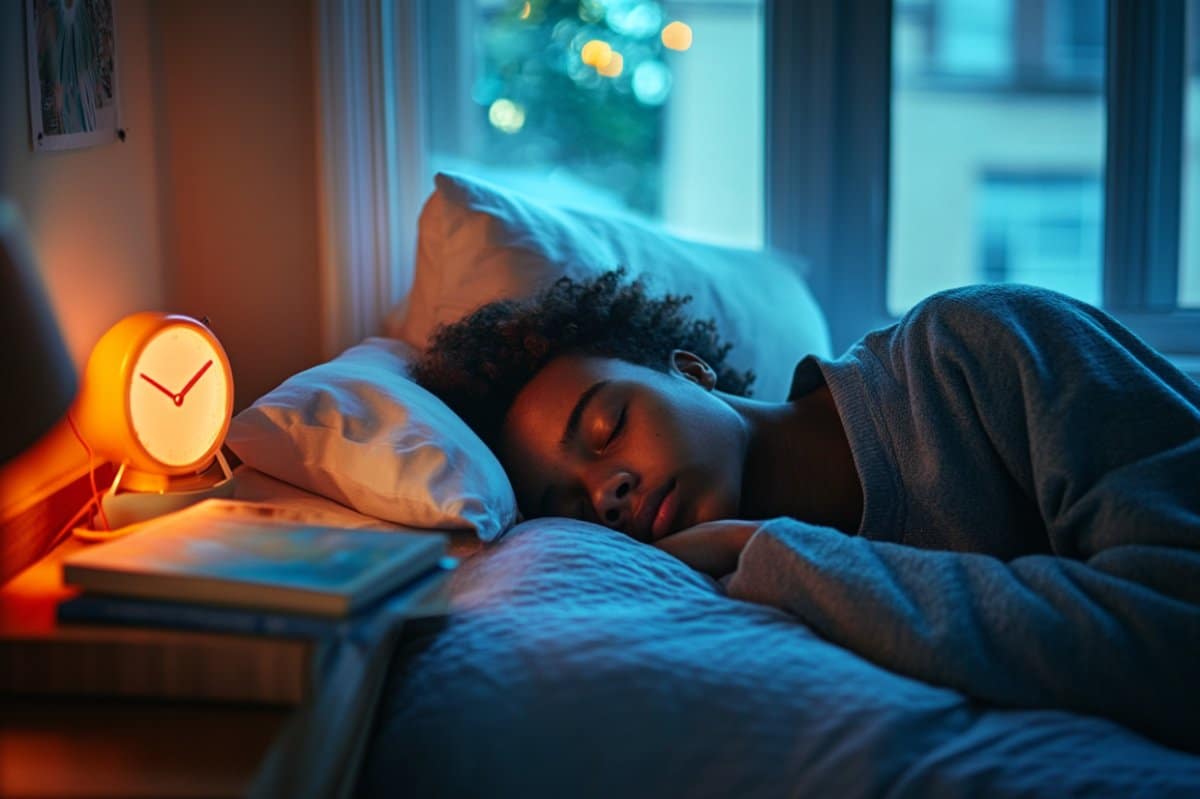Summary: A new study reveals that teenagers who get moderate catch-up sleep, up to two extra hours, on weekends report fewer symptoms of anxiety. Sleeping significantly more or less on weekends than on weekdays, however, was linked to higher anxiety levels.
The findings suggest that a small amount of weekend recovery sleep may help buffer mental health risks from weekday sleep loss. With most teens not getting enough sleep during school nights, understanding the ideal sleep balance could guide healthier habits.
Key Facts:
- Sleep Sweet Spot: Up to 2 extra weekend sleep hours reduced anxiety in teens.
- Too Much or Too Little: Both oversleeping and undersleeping on weekends were linked to more anxiety.
- Teens at Risk: Only 23% of high school students get the recommended 8–10 hours of sleep.
Source: AASM
A new study to be presented at the SLEEP 2025 annual meeting found that teens who get moderate, but not excessive, catch-up sleep on weekends have fewer symptoms of anxiety.
Results show that teens who got up to two more hours of sleep on weekends than on weekdays exhibited fewer anxiety symptoms compared with those who did not sleep longer on weekends.

However, longer durations of catch-up sleep on weekends were associated with slightly more internalizing symptoms.
“The results show that both sleeping less on weekends than weekdays and sleeping substantially more on weekends were associated with higher anxiety symptoms,” said lead author Sojeong Kim, a doctoral candidate in the department of clinical psychology and psychology graduate advisor at the University of Oregon in Eugene.
“In contrast, moderate catch-up sleep — defined as less than two hours — was associated with lower anxiety symptoms, suggesting that some weekend recovery sleep may be beneficial.”
The American Academy of Sleep Medicine recommends that teenagers 13 to 18 years of age should sleep 8 to 10 hours on a regular basis to promote optimal health. However, CDC data show that only 23% of high school students get sufficient sleep on an average school night.
“Many teens try to make up for lost sleep by sleeping in on weekends,” Kim said.
Consistently getting sufficient sleep is associated with better health outcomes including improved attention, behavior, learning, memory, emotional regulation, quality of life, and mental and physical health. In contrast, insufficient sleep in teenagers is associated with increased risks of problems such as depression and suicidal thoughts.
The study involved 1,877 adolescents with a mean age of 13.5 years. Sleep duration was estimated using Fitbit devices, while internalizing symptoms were assessed using the Child Behavior Checklist survey. Weekend catch-up sleep was calculated as the difference between weekend and weekday sleep duration.
Kim noted that it is important to identify the right amount of catch-up sleep that is beneficial to teens who restrict their sleep during the week.
“Too little or too much sleep variability from weekday to weekend may contribute to the symptoms someone is trying to combat, like physical or mental fatigue and feelings of anxiety,” she said.
About this sleep and anxiety research news
Author: Hannah Miller
Source: AASM
Contact: Hannah Miller – AASM
Image: The image is credited to Neuroscience News
Original Research: The findings will be presented at SLEEP 2025






